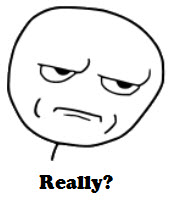Fox12 said:
I politely disagree.
People say that Miller lost his mojo. I don't think he ever had it to begin with. My main, real issue with Miller is that his themes and ideas are very shallow. He touches on philosophical ideas, be he never scratches below the service. In TDKR, for instance, a news anchor brings up the issue of civil liberties, and whether it's ethical for Batman to be a vigilante. That was a really interesting question, and I was curious to see how Miller would flesh it out. Only he didn't. His response seemed to be "because he's Batman. Of course he's right." The whole book was like that. He didn't adequately explore any of his ideas. He seemed to suggest that Batman was rather mentally unbalanced at the beginning, but that thread is never followed. He seems to question whether Batman should kill or not, but he doesn't really go into any depth. I thought, for a moment, that Batman was a sort of parody of over violent superheroes, but then I realized he was being played seriously. Miller touched on a lot of important issues, but he never fleshed them out.
Compare that to Moore's Watchmen. We get a real in depth look at how deranged a person has to be to dress up and fight crime. Rorschach is mentally damaged, ozzy is obsessed with his legacy, Hooded Justice was a masochist... none of them were really doing it for anyone else. They made the world worse. Is it good to be a masked vigilante? Of course not. We even see this in V for Vendetta. Alternatively, look at Moore's exploration of the ubermansch. There are at least three in Watchmen. We have Rorschach, who forms his sense of morality, Ozzy, who represents a kind of ideal man, and Dr. Manhatten, who has evolved past our concept of right and wrong. They're all Nietzsche's "superman," and yet their all different. There's also the obvious pun of philosophical "supermen" who are also literal supermen. Moore's ideas are like a complex web, and they're thoroughly explored. I just don't get that from Miller.
I guess that amounts to a personal preference for philosophically-inclined comic books. Which isn't a bad thing; if someone asked me to pick a comic book for philosophy buffs, nothing by Frank Miller would be on the list. It's not what he's known for.
What I find, however, is that Miller's failure to explore contentious issues raised by his narrative doesn't actually detract from the quality of the narrative. Or, at least, it doesn't do it to a noticeable degree. The Dark Knight Returns is, essentially, "retired Batman gets back in the game," and it never gets more complex than that. It's a really good Batman comic because it's a really good examination of (and expansion of) Batman's character and that of his rogue's gallery. It doesn't answer fundamental questions about the efficacy of vigilante justice in stopping crime, but I don't think it
needs to in order to be a good comic book.
In fact, while writing this I thought of one of my favourite Alan Moore comics; Tom Strong. In case you've never read it, it's an entertaining reconstruction of the pulp fiction science hero archetype popular in the 1930s. It has a talking gorilla, a steam-powered robot butler, a UFO that can fly to a mirror Earth on the other side of the galaxy, and a trans-dimensional high-tech Aztec empire. I kind of loved it; it was endearing and colourful and smart without seeming pretentious. It's also almost completely free of anything resembling philosophical inquiry; a few issues raise interesting ethical questions, but nothing substantial. It's not a high-brow comic. Considering this came from Alan "I literally put essays between the chapters of my comic books" Moore, it was kind of a delightful surprise. I'd say the same of his Top Ten series from the same rough time period, but I didn't like it quite as much.
I figure the statement that I'm rambling towards is, essentially, that comic books and comic book writers don't have to answer Serious Philosophical Questions (TM) in order to be good comic books/comic book writers. Just like everything else, really; none of the Avengers films have raised any questions smarter than "is it okay to spy on people in the name of national security oh wait they were all Nazis, I guess it's bad." They're still good films. TDKR has the subtlety of a brick in a sock; I don't think that makes it a bad comic. It doesn't ask complex questions about violence and retributive justice and mental health. It asks "Hey, what if Batman retired and got old and then had to get back into crime-fighting?" Then it answers that question. That's enough for me, really.

